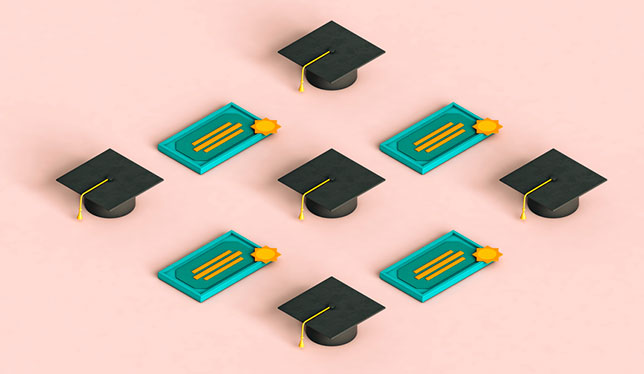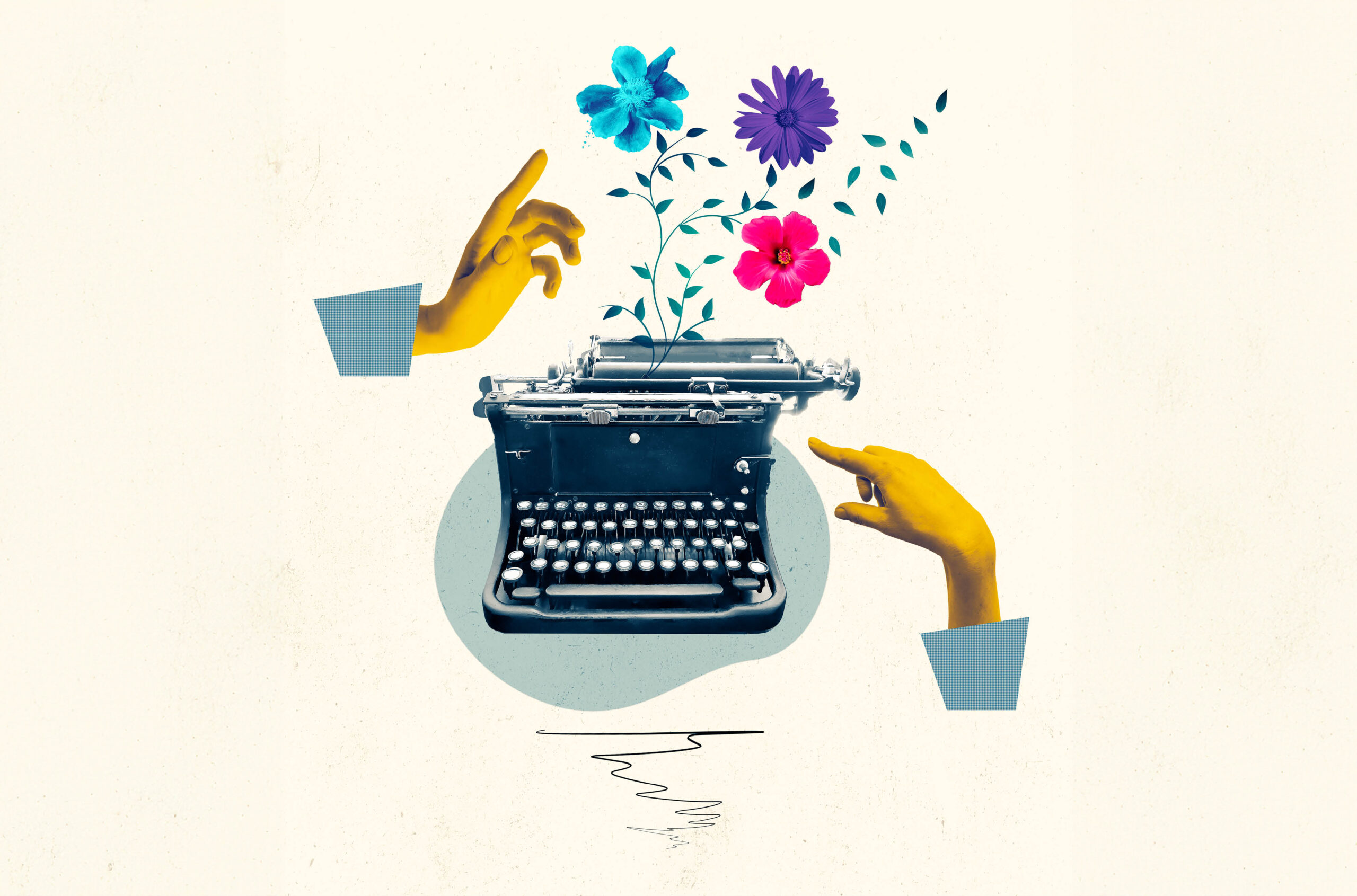Telling the story of who you are through a scholarship application
Current recipients of the McCall MacBain Scholarship share tips and experiences from the application process.

The McCall MacBain Scholarship was established in 2019 with a landmark $200-million donation, the then-largest gift in Canadian history. The program is designed to bring together a diverse group of master’s and professional degree students who have demonstrated leadership potential and a drive to have a positive impact in the lives of others. Thirty students from 10 countries will arrive at McGill University this fall to make up the program’s third cohort. The McCall MacBain Scholarship is a unique opportunity to develop lifelong connections, grow as a leader, and study in a vibrant city, but it can be daunting to put your name forward. As current recipients, we want to shed light on our experiences applying for the scholarship and within the program.
Online application
The online application opens in June and is due at the end of September for applicants in Canada. Since the application process is very reflective, it is ideal to start thinking about your answers early. As Sidney notes, “I wrote the questions down in a notebook and carried them around with me. I took notes day to day as I tried to figure out how to best tell my story, thinking about all the different parts of my life and how they fit into those questions.”
The short essays ask about your journey to becoming a leader in your community. Topics include your intended graduate programs and how your communities influenced your postsecondary path, as well as reflections on a leadership experience, a volunteer contribution, and a “course correction”. These short essays are different from many prompts in scholarship applications because they are very introspective and leave room for you to tell your own story. In one of Sidney’s short essays, she talked about, “switching what I was going to study for my degree many times over the course of my undergraduate degree, and how making those leaps of faith and difficult decisions to follow what I am passionate about led to me learning a lot about myself and what I needed in my life to feel happy, and a huge part of that was finding the way to best utilize my skill sets to care for my community.”
Reference letters
The application also involves two reference letters. We sought out reference writers who knew us well and could speak to who we are from our interests and activities to our character traits and values. As Michelle explains, “I wanted to identify people who I really respected, who embodied the principles behind the scholarship. These were also people who had given me the opportunity to be a leader in the past. It was wonderful when I actually did get the scholarship and I got to thank my references for investing in me.”
You need one academic reference and one community reference. For our academic references we asked professors who knew us personally. In Michelle’s case she wanted to ask professors who taught her “in classes that drew out my values. I wanted to make sure that they wouldn’t just be people who would say that I was competent, but would also be able to speak to the challenges I’ve dealt with in different parts of my life and who I am as a person.” In Sidney’s case, she asked a professor she hadn’t ever taken a class with, but worked as a research assistant for and who mentored her throughout her degree. For a community reference, Sidney asked someone who she had worked alongside for years doing community work that she was passionate about, where they understood her mission, her values, and deep down who she is as a person.
Interviews
The interview process is a defining component of the selection process for McCall MacBain Scholars, with the top 20 to 25 per cent of Canadian applicants invited to interview. The interviews take place in two rounds, first in the fall in your home region for a half-day, then in-person in Montreal for the final round over the course of three days in March. Each round of McCall MacBain interviews brings the candidates together to mingle and get to know each other throughout the day. Students are notified of their results a few days after each interview round.
The experience is also unique because of the level of attention the interviewers pay to each candidate’s application, using them as the basis for asking thoughtful, reflective questions. For both regionals and finals, the interviews take the format of two interview sessions with two different interviewers, and then one full panel interview with all four of them. The interviewers generally ask questions related to your short essay responses, your past experiences, your hopes and aspirations, and who you are as a person. As Michelle notes, “it’s impossible to predict exactly what the interviewers will ask, but I found it helpful to prepare by reflecting on how my past experiences have shaped me, where I hope to be in the future, and what aspects of myself might not have been captured in the online application. The interviews are unique, thought-provoking opportunities to consider who you are and who you want to become.”
Within a few days of the final interviews, we received calls letting us know that we would be part of the 2022 cohort of Scholars. Ultimately, the McCall MacBain Scholarship opens up opportunities that make graduate school even more enriching. For both of us, the community we have formed through the scholarship has been a deeply supportive environment amid the challenges of graduate school.
Featured Jobs
- Education - (2) Assistant or Associate Professors, Teaching Scholars (Educational Leadership)Western University
- Business – Lecturer or Assistant Professor, 2-year term (Strategic Management) McMaster University
- Veterinary Medicine - Faculty Position (Large Animal Internal Medicine) University of Saskatchewan
- Psychology - Assistant Professor (Speech-Language Pathology)University of Victoria
- Canada Excellence Research Chair in Computational Social Science, AI, and Democracy (Associate or Full Professor)McGill University
















Post a comment
University Affairs moderates all comments according to the following guidelines. If approved, comments generally appear within one business day. We may republish particularly insightful remarks in our print edition or elsewhere.
22 Comments
Thank you Michelle and Sidney for sharing your stories. I’m currently applying for this same scholarship and your stories have served as an encouragment to and a guide for me as I pursue this opportunity. I really look forward to being accepted!
Thank you Michelle and Sidney for sharing.
I’m on the process of applying and I’m writing regarding the endorsement of my university, since its not partnered with McCall MacBain.
Although I already have the sponsor and recommendation from the Dean, they are wondering what is the next step for my process. If a letter of recommendation is necessary, what specifications should it include, if it has any format, or if necessary, fill out the questionnaire (like the other recommendations).
Thank you in advance and I await for your response.
I am so happy and inspired by your story pertaining to your experiences in the application and interview process for the McCall McBain scholarship. As an aspirant, I am sure your experience will give me a clear road map and blueprint to navigate this process with confidence and high esteem. I hope to become part of the next cohort and to be able to learn, share my knowledge and experience while harnessing my talent to solve problems and to create amazing projects that make life better for our communities.
Thank you for sharing
Hello! Thank you Michelle and Sidney for sharing your application story. I’m curious, is this opportunity available to international aspirants?
I want to say a big thank you for this. Having read this as inspired me, I have thought so much that I didn’t want to apply anymore cause I don’t think I would qualify as it has to do with so many other states.
However, reading and watching this has set my mind in the positive space and I hope for the best.
Thank you all
Thank you McGill
Thank you for sharing this vital information. Your insights have truly inspired me as this will guide me my application this year.
Thank you so much MaCall MacBain Scholars, for motivating me and inspiring my dreams of becoming exceptional. I love the experiences of Michelle, Baker and Sidney as a guidelines for the scholarship application program, I am sure your experiences is a clear direction in my application, as the next cohort to share my thoughts and abilities provide people oriented policies for my community.
Thank you Michelle and Sidney for sharing your scholarship interview experience, This as being a motivate to pursuing with my application for this cohort.
This here is indeed the motivation I need to keep up with this next step and phase.
Thank you Michelle and Sidney.
My warmth appreciation to the founder of the McCall McBain scholarship. Am grateful for been an applicant already for the ongoing round of application. This email has really helped a lot, I have been rediscovering who I truly am this feel days, and curiously about what my community reference may say. Thank to the university management for this set up.
Hoping to be a scholar soon.
Hello Michelle and Sidney, reading your stories gives me a high hope, thank you for making me believe in myself more. As a born leader who is created to make impact in my community, I know I can stand out and make a difference as I apply for the Fall entry in 2024.
Thank you for sharing your story.
Thank you for the opportunity to be part of the applicants for the year. I appreciate the thought-provoking questions on the essay, it pushed me to reflect deeply, think about my life and where I have been contributions in my life and the community. The questions are unique l must say. I also appreciate your stories. They are inspiring.
This is indeed a good read. Thank you Mitchell and Sydney. Reading this has revealed the path which I must take to ensure that I am capable to get this scholarship. I have had several thoughts on the phases of the application, then I came here and I have found answers to my thoughts. I can’t wait to see you Mitchell and Sydney, I am positive that I would see you both in person.
Wow, happy reading these experiences from beneficiaries. My name is Adam Abdul-Fatawu Wunizoya, a graduate of the University of Cape Coast (UCC) Tamale College of Education campus (Ghana).
I am a prospective applicant for this year’s cohort, and can’t wait to have my experiences shared here when selected.
These experiences I read will add value to my application. Can’t wait to meet friends from different Continents and countries.
Thank you so much for sharing about your application story Michelle and Sidney. I am currently an Applicant of this Prestigious Scholarship, I am Really Looking forward to being Accepted,
Obtaining this scholarship necessitated a significant investment of time and thorough research. Recognizing that my pursuits should align not only with personal interests but also benefit the broader community, I delved into extensive contemplation and inquiry. I dedicated time to understanding contemporary global challenges, focusing particularly on the pivotal changes necessary to initiate a positive impact at individual, communal, and global levels.
My journey towards applying for this scholarship was marked by a deliberate exploration of pressing global issues. I scrutinized complex problems, analyzed potential solutions, and assessed their potential consequences. This process of self-education and reflection enabled me to grasp the profound significance of effecting change at various scales.
Having internalized the imperative of constructive transformation, I meticulously aligned my aspirations with the betterment of society. The decision to apply for this scholarship was informed by a holistic perspective, rooted in comprehensive research, empathetic understanding, and a genuine commitment to contribute meaningfully.
In essence, my application for this scholarship is not a mere personal endeavor; it is a culmination of profound introspection, engagement with contemporary challenges, and a resolute dedication to catalyze positive change. The journey has been one of self-discovery, awareness of communal needs, and a pledge to address global issues through purposeful action.
Yours Ouma Philemon
Thank you Michelle and Sidney for sharing your amazing experience with us. I’m currently applying for the same scholarship. Your stores have inspired and encouraged me to push through the application process. I am looking forward to my application being accepted. Thank you for inspiring me with your experience.
Wow, I am so inspired. Thank you so much Michelle and Sidney for sharing your stories. I really look forward to being accepted! I am encouraged to do more.
This information is really inspiring and helpful to guide us in our scholarship application . Thank you so much for sharing, Michelle and Sidney.
Thank you Michelle and Sidney. Your story is quite encouraging and inspiring. I hope i will get the scholarship.
Je loue le courage de Sydney et Michelle pour cette expérience formidable. Vous m’avez encourager a postuler et vous m’avez aidé à croire qu’on réussir dans la vie lorsqu’on sait ce qu’on veut.
je prie d’avoir moi aussi la possibilité de vivre se rêve (être accepté Parmi les boursiers McCall MacBain 2025.
Thanks you Michelle and Sidney for sharing your knowledge with me. This has given me a clearer understanding of what is required of me and of course, I believe that I will make it in this scholarship.